Top Pet Insurance Articles
Everything you need to know about cutting pet care costs and finding an insurance company for your furry (or feathered) friend.
This site is a free online resource that strives to offer helpful content and comparison features to our visitors. We accept advertising compensation from companies that appear on the site, which may impact the location and order in which brands (and/or their products) are presented, and may also impact the score that is assigned to it. Company listings on this page DO NOT imply endorsement. We do not feature all providers on the market. Except as expressly set forth in our Terms of Use, all representations and warranties regarding the information presented on this page are disclaimed. The information, including pricing, which appears on this site is subject to change at any time.

Cheapest Pet Insurance Providers for Dogs & Cats 2026
If you want to keep your pet healthy and happy without breaking the bank, you might be in the market for cheap pet insurance.

What Does Pet Insurance Cover?
Vet bills can be unpredictable—but pet insurance helps you plan ahead.
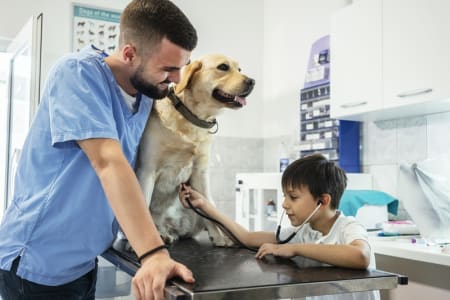
The Most Common Pet Health Issues and How Much They'll Cost You
Caring for a pet brings immense joy, but it also comes with its share of challenges, especially when it comes to their health. From minor ailments to more serious conditions, pet owners are likely to encounter a variety of health issues throughout their pet's life.

What Is Pet Insurance and How Does It Work?
Pet insurance is a financial safety net that helps pet parents manage the cost of veterinary care. Depending on the plan and add-ons you choose, it reimburses you for medical expenses related to accidents, illnesses, and routine wellness care.

How to Switch Pet Insurance Providers
If you have a pet insurance policy, you should know that it's not set in stone. At some point, you might decide to switch pet insurance companies for various reasons. Maybe your current coverage no longer fits your budget or your pet's evolving needs.
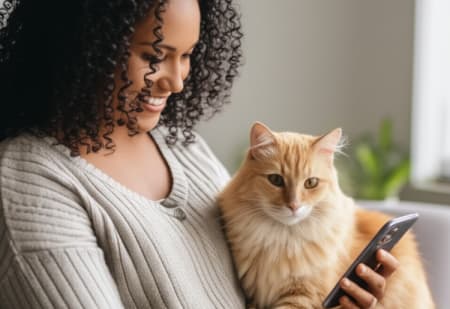
How to File a Pet Insurance Claim
Pet insurance is a great way to keep your pet happy and healthy while keeping your finances in check.

Denied a Pet Insurance Claim? Here's How to Appeal (Step-by-Step)
Getting your pet insurance claim denied can be frustrating and financially stressful.

Pet Insurance vs Savings Plan: Which Is Right for Your Budget?
Your best move: Insure young pets when premiums are low and build savings as a backup.

Top Largest Dog Breeds and How To Insure Them
Giant dog breeds are known for their massive size, loving nature, and protective instincts — but owning one also means higher veterinary costs, more frequent health issues, and special care requirements.

Best Pet Insurance for Puppies: Compare Early Coverage & Wellness Plans
A puppy can bring joy and companionship to you and your family. However, it may also require a great deal of medical care at the beginning of its life.
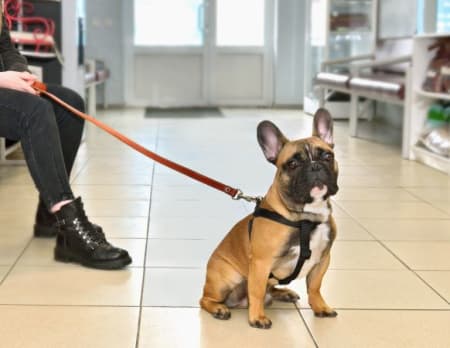
How Much Does a Vet Visit Cost? Understanding Pet Care Expenses in 2026
Pet ownership can be a joy, but it also comes with significant costs. Between diagnostic testing, vaccinations, and x-rays, a visit to the vet can quickly become expensive.
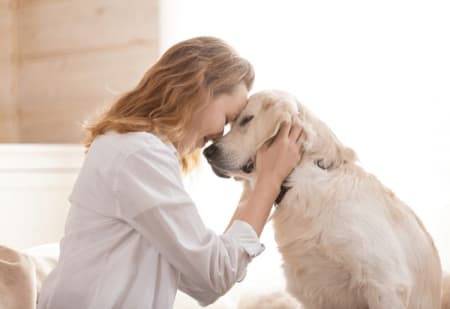
Best Pet Insurance for Older Dogs of 2026
Dogs can bring so much joy to our lives, even when they enter their golden years.

The Best Time to Get Pet Insurance: Age and Health Considerations
Wondering when to buy pet insurance? The best time to get coverage is before your pet needs it. Many owners wait until their dog or cat develops a health issue, but by then, most pet insurance plans won’t cover pre-existing conditions.

Best Kitten Insurance Companies of 2025
There’s no denying that kittens have a lot to offer, including joy, companionship, and unconditional love.

Best Pet Wellness Plans of 2025
Pet wellness plans are suitable if you want to reduce the risk of unforeseen veterinary care.

Best Pet Insurance for Cats: Top Providers Reviewed 2026
Cat insurance helps offset vet costs for accidents, illness, and routine care. We reviewed top plans to help you find the best coverage for your cat in 2026.

How Much Does It Cost to Spay or Neuter Your Pet? Complete Price Guide
These procedures can improve your pet's behavior, reduce the risk of unwanted pet pregnancies, lower the risk of uterine infections in female pets, and even reduce the risk of cancer.

How Much Does Pet Insurance Cost? Complete 2026 Guide
As a pet owner, you're likely aware of how quickly veterinary bills can add up, especially in emergencies. Pet insurance can help manage these costs, but you may wonder: how much is pet insurance, and is it worth the investment?

Best Pet Insurance for Dogs in 2026: Compare Plans & Prices
No matter the age of your furry friend, it’s your job to keep them happy and healthy.
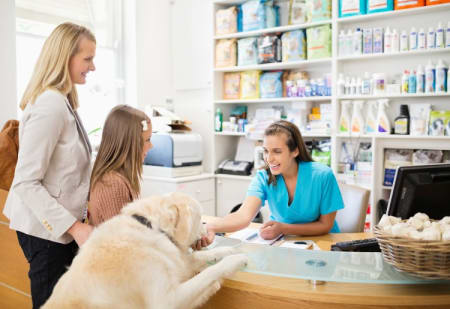
Pet Insurance That Pays Vets Directly: Simplify Your Vet Visits
When your dog suddenly needs emergency surgery or your cat requires expensive diagnostics, the last thing you want to worry about is paying thousands upfront while your pet is in pain. Pet insurance that pays veterinarians directly eliminates this financial stress by settling covered bills at checkout, letting you focus entirely on your pet's recovery.

How to Cancel Pet Insurance: A Step-by-Step Guide
You can cancel your pet insurance policy at any time — and for any reason. Whether you found a better plan, changed providers, or no longer need coverage, canceling is usually simple. In this guide, we’ll walk you through the step-by-step cancellation process and explain how top providers like ASPCA, Lemonade, and Embrace handle cancellations and refunds.

How to Save Money on Pet Care: 9 Inflation-Proof Tips
As inflation continues to impact everyday expenses, pet owners face tough decisions about managing rising costs.

Pet Insurance For Breeders
Whether you're a new breeder or seasoned professional, you know that while breeding is extremely rewarding, it comes with significant risks.

Best Pet Insurance for Multiple Pets: Compare Top Plans and Discounts
Not only can furry friends bring you joy, happiness, and companionship, but they may also increase your physical activity levels and even reduce stress.

How We Rate and Select the Best Pet Insurance Companies
We’ve created the following process to identify the most suitable pet insurance companies for your needs and deliver on our mission to help you make informed decisions.

Pet Mental Health: Understanding and Addressing Cat and Dog Behavioral Issues
Just as we prioritize our own mental health, recognizing and behavioral issues in pets has become a crucial aspect of responsible pet ownership.
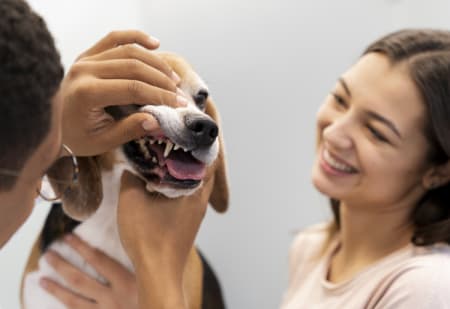
What Is a Good Annual Limit for Pet Insurance?
By investing in pet insurance, you can offset the high costs that often come with veterinary care.
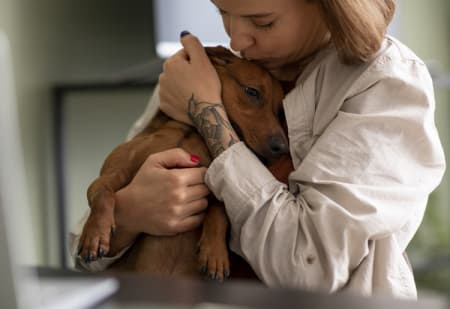
Does Pet Insurance Cover Cancer?
Did you know nearly 6 million dogs face a cancer diagnosis each year?

What Is a Pet Insurance Deductible?
Choosing the right pet insurance policy starts with understanding deductibles. Before you purchase coverage, learn how these costs affect your premiums and what you'll pay at the vet.
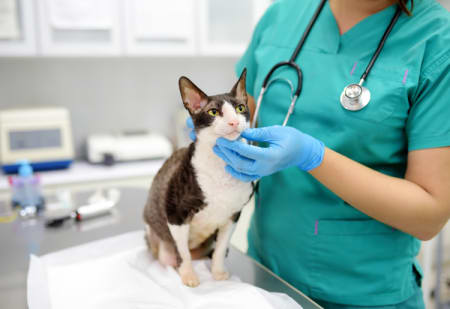
Preventive Care: Investing in Your Pet's Future Health
As pet owners, we all want our furry companions to live long, happy lives. Pet insurance preventive care is one of the best ways to ensure this.

What Are The Types of Pet Insurance?
Every pet owner has unique budget and coverage needs.
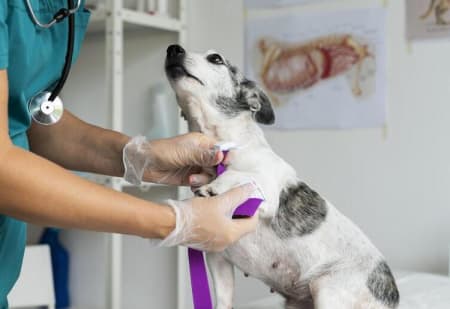
Does Pet Insurance Cover Surgery Costs?
When conservative treatments aren't enough for your pet's health issues, surgery often becomes necessary. Unfortunately, these procedures can cost thousands of dollars, making it difficult for pet parents who want the best for their furry family members.

Accident-Only Pet Insurance: Is It Right for You?
Accident-only pet insurance protects against unexpected injuries at a fraction of comprehensive plans. It's an affordable safety net for major accidents that could otherwise cost thousands in vet bills.

Understanding the Fine Print: Pet Insurance Exclusions
Understanding common exclusions helps prevent costly surprises and enables you to choose the right plan for your pet.

Is Pet Insurance Worth It?
As pet parents face increasingly expensive medical bills for their four-legged family members, many turn to pet insurance as a potential solution.

Exotic Pet Insurance: Our Ultimate Guide
When it comes to pet insurance, most of the industry’s focus is on covering cats and dogs. But what about those with more unconventional companions?

Does Pet Insurance Cover Prescription Food?
If your pet has a medical condition, a vet might prescribe a special diet to help manage symptoms and improve overall health. Since prescription food costs can add up quickly, you may wonder whether pet insurance covers these expenses.
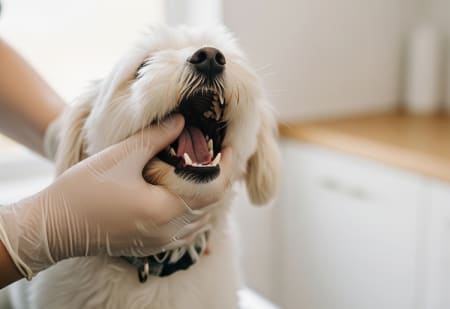
Pet Dental Insurance: A Buyer's Guide
Unfortunately, these complications can become complicated and costly to treat.

Senior Pets: How to Provide the Best Care in Their Golden Years
Aging pets need more than just love—they need a plan. Supporting them through their golden years starts with understanding their changing needs.

How To Choose The Right Insurance For Your Pet
Weigh the options and understand what you're paying for when you look for a great pet insurance provider to save you money and keep your pet healthy.

Understanding Pet Insurance Waiting Periods & How They Work
When you buy a pet insurance policy, coverage doesn't begin instantly. Most providers require a waiting period—a short window of time between when you enroll and when your benefits officially start. Understanding how waiting periods work is key to avoiding surprises, especially if your pet gets sick or injured shortly after enrollment.
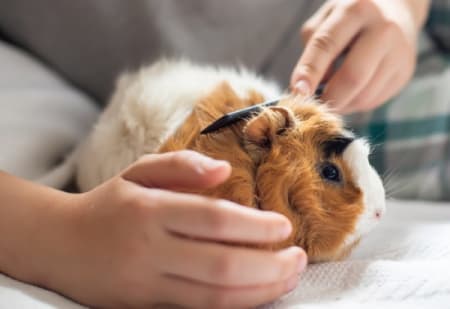
7 Cheap Pets That Won’t Break the Bank
While the lifetime cost of owning a dog can reach up to $55,000, and cats can cost over $45,000, there are many affordable options for animal companionship.

Is Your Pet at Risk for Breed-Specific Health Issues?
Just as humans inherit traits from their families, our pets carry genetic legacies that can impact their health.

A Simple Guide to Adopting Your First Pet
As more people discover the joys of pet adoption over purchasing from breeders, understanding how to navigate this journey becomes increasingly important.
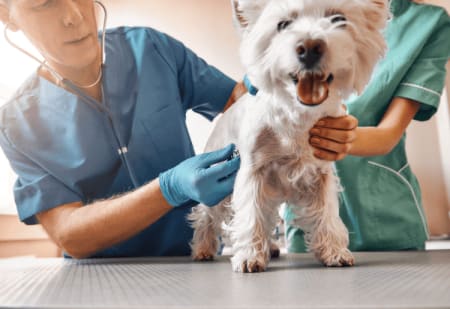
Best Emergency Pet Insurance of 2026
Pet emergencies are bound to pop up at any time, regardless of how healthy or safe your pet may be.
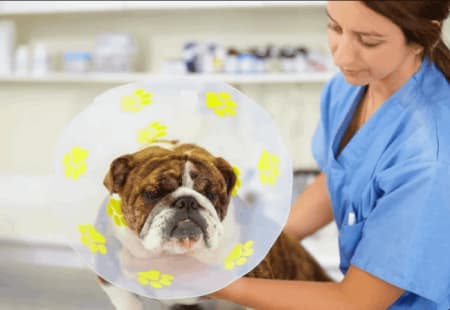
Pet Insurance that Covers Pre-Existing Conditions: What You Need to Know
Understanding pre-existing conditions is crucial if you're considering pet insurance for your furry friend. This knowledge can help you choose among the best pet insurance companies and potentially save you from significant financial stress.
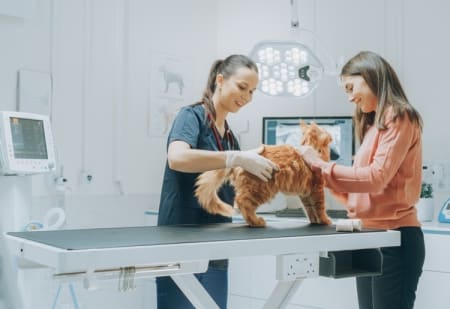
The Hidden Costs of Pet Parenting: What Every Owner Should Know
The true cost of pet ownership often surprises people, but understanding these expenses is key to successful pet parenthood.

Does Pet Insurance Cover Vaccinations? Here’s What to Know
While standard policies focus on accidents and illnesses, many owners are surprised to learn that preventive care like vaccines isn’t automatically included.

